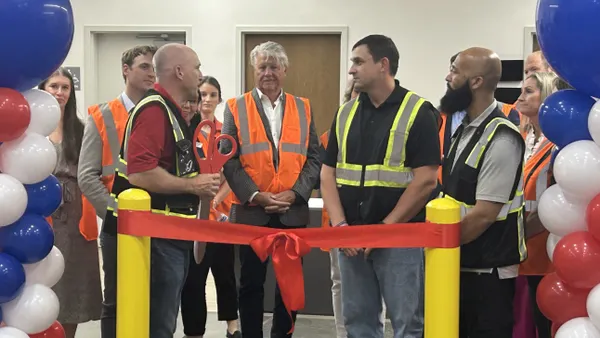Dive Brief:
- The U.S. Department of Transportation (DOT) is expected to close the debate over Obama Administration's hours-of-service regulations in a report to Congress after finding drivers operating under proposed changes to the 34-hour restart regulations were not any safer than drivers operating under current standards, Overdrive reported Monday.
- The decision follows a study by the Federal Motor Carrier Safety Administration and the Virginia Tech Transportation Institute, which studied 200 drivers in two groups: one group abided by the once-weekly restart limit with a mandated 1 AM to 5 AM rest period, while the other did not.
- No appreciable benefits were found among the group abiding by the rules set in place in 2013, but suspended in December 2014 pending the results of this study. The regulation was debated from the start as truckers and businesses alike argued was issued without sufficient evidence of its benefits.
Dive Insight:
Relief is great among truckers and their assorted associations after news that the results of the DOT driver study will remove the specter of a potentially reinstated changes to hours of service regulations mandating two night breaks and a weekly limit.
Though initial outcry in 2013 when the rules were initially instituted was strong enough to delay their enforcement while the additional study was undertaken, the potential that the 2013 changes would be adopted loomed large enough to impact not only drivers but the companies that employ them. The American Trucking Associations and the Owner Operators Independent Drivers Association alike have endorsed the study's findings.
Changes to the 34-hour restart rule gained infamy over the years due to the inconvenient breaks it forced upon truckers, delaying their ability to deliver goods on schedule or to avoid rush hour traffic. In addition, some industries like the chemical industry argued the rule accentuated driver unavailability, and in a recent report argued such a regulation plus required hazmat trainings would stifle the industry's growth altogether since 61% of chemical shipments travel by truck.
At a time when the trucking industry is plagued by worries regarding driver shortages, and the potential loss of jobs due to automation, the news that it will continue policing itself is welcome.













